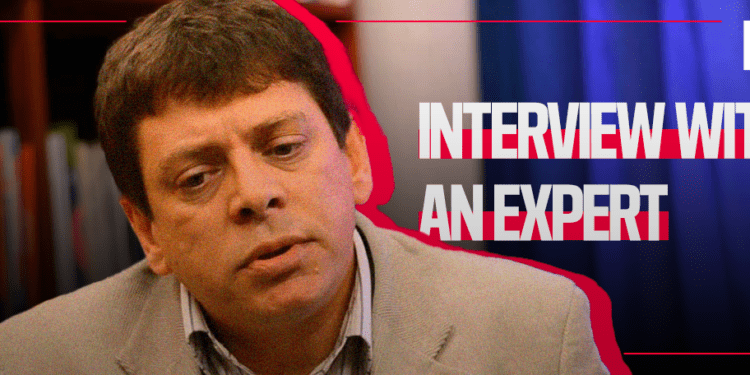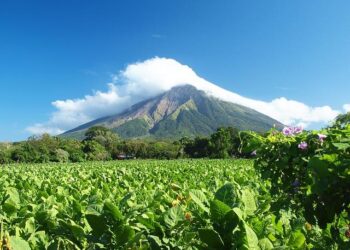RSF: What are the main strategies RT uses in Latin America?
Vladimir Rouvinski (VR): RT employs two main strategies: a one-sided narrative that only shows one perspective of the story, and never criticises Russia. For example, even Voice of America (VOA), funded by the U.S. State Department, provides critical coverage of U.S. policies. France 24 does the same. But RT never criticizes Russia — Russia is always portrayed as flawless.Â
This is because RT is an information weapon designed to support Vladimir Putin’s strategy beyond Russian borders. It is on a list of strategic companies essential for the Russian government to achieve its objectives. RT’s budget is guaranteed, as is the funding for the holding company that also owns Sputnik Mundo.Â
RSF: Can you give specific examples of RT’s propaganda tactics in Latin America? RT’s presence has been growing in the region since the launch of RT Actualidad (RT in Spanish) in 2009.
VR: In Latin America, RT’s tactics differ slightly from other parts of the world. Putin’s interest in Latin America is driven by reciprocity. They view Latin America similarly to the former Soviet territories like Ukraine and Belarus. Moscow believes that Latin America is as essential to the U.S. as Ukraine is to Russia. For Russia, Venezuela and Cuba are the equivalents of Ukraine and Belarus.
As a result, RT primarily attacks the U.S., portraying it as the cause of problems, both domestically and in the Western Hemisphere. Their coverage of issues like migration, human rights, and the environment is designed to paint the U.S. in a negative light. I’ve documented examples of this, but even a glance at RT’s programming reveals their agenda.
RSF: But some might argue that thanks to RT, stories that couldn’t be told elsewhere are finally being reported. How do you address the argument that RT is simply exposing the USA’s wrongdoings?
VR: RT’s reporting is not unique. Other media outlets could cover these issues without being funded by the Russian government. The issue with RT is how they frame the topics, emphasizing elements that provoke an emotional reaction. It’s a one-sided perspective that leaves viewers with a distorted understanding of the issues. They present problems where the U.S. is solely to blame, offering no alternatives or solutions. It’s not about fake news, but the way things are presented distorts the truth.Â
RSF: In your writing, you’ve said that RT’s strategy isn’t just anti-American. Can you explain what else Russia is pursuing in Latin America?
VR: There was a significant shift after Russia’s war against Ukraine began in 2022. For Putin, this war marked a turning point, and he sees himself as a key architect of a new world order. Behind the rhetoric of multipolarity is an imperial vision of spheres of influence. Putin’s ideal world is one where Russia controls Ukraine and Belarus, and the U.S. controls Latin America. Many in Latin America don’t realize this, but supporting Putin’s vision ultimately returns the region to a world order we’ve been trying to move beyond.
However, by standing up to the U.S., Putin gains respect in Latin America. Many admire him for confronting the “Yankees,” even though his ideology has nothing to do with the left. Leftist forces support him because they see him as a counterbalance to U.S. hegemony.
RSF: In which countries does RT find the most resonance?Â
VR:Â RT is widely recognized in the region, particularly among journalists and a significant segment of the population. Its presence is notable across Latin America, with the strongest footholds in Mexico and Argentina, though it is also known to a lesser extent in other countries.
RSF: Who in Latin America is behind the media strategy that supports Russia? Are there specific people or governments allied with Russia in this effort?
VR: That’s an important question. There’s a need to distinguish between those who disagree with their country’s official position based on solid analysis, and those who act as enablers of Moscow’s interests.Â
In universities, think tanks, instead of calling the conflict a war, they refer to it as a “special military operation.” There are parallels between the narratives of certain professors in public universities, particularly in Mexico and Argentina, who repeat Moscow’s propaganda. They present it as their own analysis, but it’s clearly aligned with Moscow’s messaging. Interestingly, their narratives change when Moscow’s narrative shifts, which makes them appear as mere extensions of Russian propaganda.Â
The governments of Venezuela and Nicaragua clearly support RT and Russia’s propaganda. They’ve formed informational alliances with Russia. In Nicaragua, the alliance is tied to one of Ortega and Murillo’s sons, who is in charge of propaganda. They’ve set up a hub in Managua, which is strategically important for Russia due to migration, drug trafficking, and organized crime in Central America. They’ve even trained Nicaraguan journalists to work in coordination with Russia.Â
RSF: How does RT recruit journalists in Latin America?Â
VR: In the past, RT paid other TV channels to retransmit its signals, and although it’s unclear if this practice continues, it was known to be one of RT’s largest budget expenditures. Regardless, RT consistently seeks alliances and support from local media. One of its most successful and well-known partnerships is with TeleSur, a pan-Latin American TV channel based in Venezuela, which amplifies RT’s messaging and remains accessible even in areas where RT’s signal is unavailable. Another notable alliance is with Nicaragua, which has been positioned as a regional hub for RT in Central America.Â
RSF: To conclude, we could say that the strategy used by Russia Today is determined by the type of stories it uses and by its one-sided approach, which consists of showing only one side of the story. These are the two clearest strategies that RT uses in Latin America.
VR : Yes, and also the fact that they never criticise Russia. You can even watch Voice of America (VOA), which is funded by the US State Department, and find critical coverage of various subjects. The same goes for France 24 or Deutsche Welle. Most of their programming is objective, offering a range of perspectives on global issues and often providing critical coverage of the countries that fund them, namely France and Germany. RT never criticises Russia. Russia is always presented as perfect.
Source link : http://www.bing.com/news/apiclick.aspx?ref=FexRss&aid=&tid=66fa733887424eecb0c4c421c8de526a&url=https%3A%2F%2Frsf.org%2Fen%2Fvladimir-rouvinski-latin-america-rt-s-tactics-differ-slightly-other-parts-world&c=16246230469065821332&mkt=en-us
Author :
Publish date : 2024-09-29 22:45:00
Copyright for syndicated content belongs to the linked Source.












